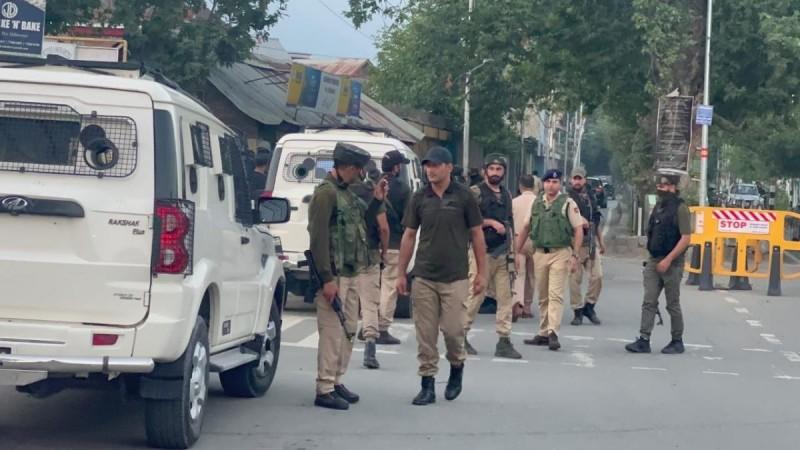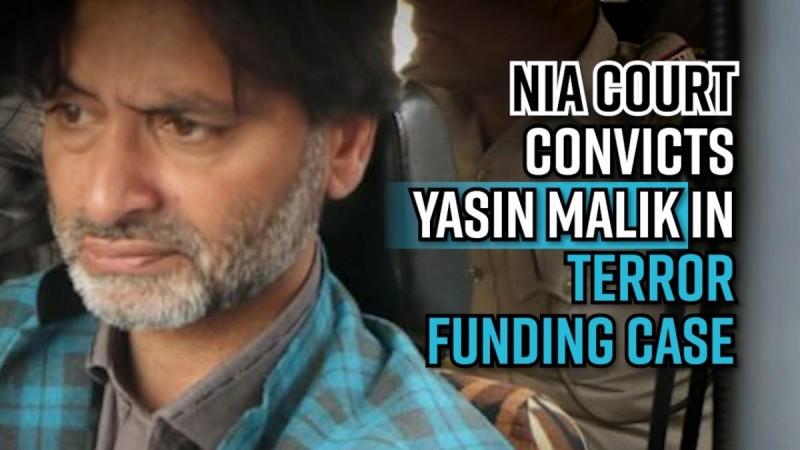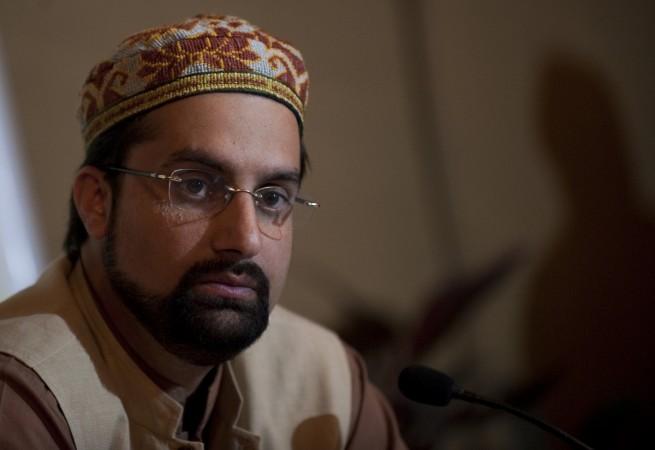With the arrest of 43 separatist leaders including some ex-terrorists Jammu and Kashmir Police foiled an attempt to revive agitational terrorism in Kashmir Valley.
Separatist leaders and some former terrorists were gathered in a hotel in Srinagar-the capital city of the Union Territory to revive the separatist movement and reactive the banned Jammu and Kashmir Liberation Front (JKLF).
Reports said that Srinagar Police detained 43 separatists, including the sons of two senior Hurriyat leaders when they were gathered to revive the separatist conglomerate and the outlawed JKLF.
"A Search was conducted on the basis of credible info about the meeting of some ex-terrorists of JKLF and erstwhile separatists in a hotel in Srinagar. They were brought to Kothibagh Police Station for verification. An inquiry has started, prima facie it came out that they were planning to revive JKLF and Hurriyat", tweeted Srinagar Police.

Former JKLF terrorists organize a get-together to devise a strategy for reviving the banned outfit
As per reports former terrorists of JKLF Mohammad Yasin Bhat had organized a get-together and lunch for ex-terrorists and separatists at a hotel in Srinagar.
When the meeting was underway, a posse of the J&K Police swooped down on the hotel and lifted all the participants for questioning at the nearby Kothibagh Police Station.
Reports said that 43 persons were detained for questioning after the raid. "The meeting was organized to revive agitational terrorism in Kashmir Valley to create law and order in the coming month", a source said, adding, "The meeting was convened on the directions of some terror mentors sitting across the border to revive different factions of the defunct Hurriyat Conference".
A Search was conducted on basis of credible info about meeting of some ex-trts of JKLF & erstwhile separatists in a hotel in Srinagar.They were brought to Kothibagh PS for verification.Inquiry has started, prima facie it came out that they were planning to revive JKLF & hurriyat.
— Srinagar Police (@SrinagarPolice) July 9, 2023
Those who were detained for questioning included Firdaus Ahmad Shah, and Mohammad Yasin Bhat, former terrorists of JKLF. Former Hurriyat chairman and cleric late Maulvi Abbas Ansari's son Masroor Abbas Ansari and another former Hurriyat chairman Prof. Abdul Gani Bhat's son, Jehangir Ahmad Bhat, have also been lifted from the meeting for questioning.
JKLF banned after Pulwama terror attack
The Union Home Ministry has already banned the Jammu and Kashmir Liberation Front (JKLF), led by Muhammad Yasin Malik, under the unlawful activities (prevention), Act 1967 in March 2019 after the infamous Pulwama terror attack.
As per the notification—number 1403 (E) issued on March 22, 2019—the central government is "of the opinion that the said organization is involved in anti-national and subversive activities and is in close touch with terror outfits and is supporting extremism in the state".

"Central Government in its pursuit of strong action against terrorism, has today declared JKLF (Yasin faction) as an unlawful association under the provisions of Section 3(1) of the Unlawful Activities (Prevention) Act, 1967. The Central Government has followed the policy of "Zero Tolerance" against terrorism and has acted strongly against terrorists. Securities Forces have been given a free hand to deal with terrorism," the Union home ministry said in a statement.
Hurriyat Conference distances from meeting
Hurriyat Conference distanced itself from the Srinagar meeting to revive separatism and terrorism.
The Hurriyat, in a statement on Monday, said:, "It wants to make it clear that those who attended this lunch, went in their individual capacity, and not as members of Hurriyat."
"It was not any Hurriyat event nor was Hurriyat leadership aware of it. In fact, it is through the media that Hurriyat came to know about it. So to attribute motives to Hurriyat in this regard is mere speculation and totally baseless," a statement by the Hurriyat, led by Mirwaiz Umar Farooq, reads.

Terror groups resort to agitational terrorism in 2008 to dilute forces' effectiveness
In the 2000s when the security for mounted pressure on terrorists, separatist groups on the direction of their mentors sitting across the border resorted to unconventional ways of diluting the forces' effectiveness.
After the decline in terrorism in the mid-2000s, stones became a popular choice of weapon during protests. This trend has been there since the 2008 Amarnath-land row agitation in Jammu and Kashmir.
Security forces had then termed stone-throwing "agitational terrorism" for targeting security forces and the police, who in turn could not use the gun on stone-pelters.

















